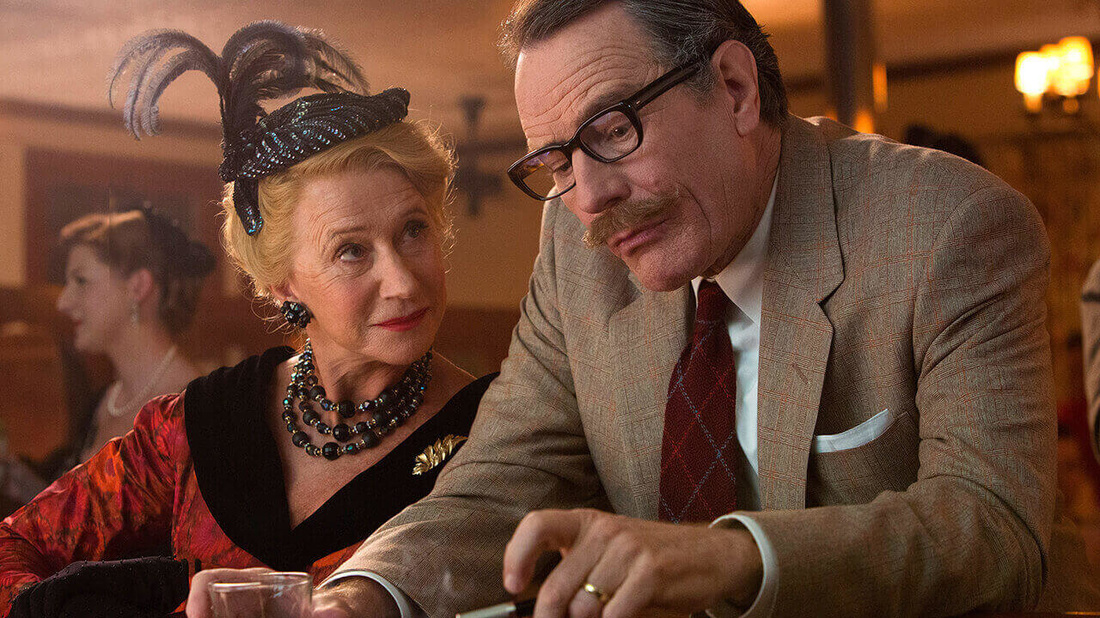Trumbo [2015] is the story of blacklisted screenwriter Dalton Trumbo (Bryan Cranston), an open communist supporter in late 40s Hollywood, and his rebellious acts of writing against the suppressive House of Un-American Activities Committee—during which he won a pair of Oscars under alternate aliases.
“Do you have to say everything as if it’ll be engraved in stone?” Never far from a cigarette Cranston demands the spotlight, from speaking John McNamara’s overtly indulgent dialogue as witty as the writers’ whose mouths its coming out of would have expected it to be read, to pecking away behind his squared specs in a smoke-thick room. And when it’s time to get serious, Cranston employs a ferocity needed from an American communist, subtly transferring it into his family life in the form of egotism and bullying onto his complacent wife (Diane Lane) and children—Niki (Elle Fanning), the eldest, taking up political stances with the same vigor as her father. Yet, Dalton never comes off as unlikeable as much as he is wittingly defiant, which is expressed at its finest when opposite to a delightfully poisonous Helen Mirren as passionate anti-communist Los Angles Times Columnist Hedda Hopper, who would have been a shoe-in for supporting actress contention if given more scenes to broaden Hedda’s two-dominical prejudices—though her ability to steal the few she’s in don’t hurt her odds in the slightest.
Why so serious? Where Trumbo stumbles, however, subsequently hinders the potential excellence of the aforementioned performances. Most glaringly stems from any details depicting Trumbo’s support for the communists. For as passionate as he is in his support, there’s a feeling that he’s overtly defiant only because Hollywood has him blacklisted—with the script choosing not to explore deeper into his motives behind his afflation. If the film had embraced its underlying comedic tone – brought forth through a blunt Louis C.K., and John Goodman as schlock producer Frank King – we wouldn’t be stuck in this awkward middle ground between the energy, wit, and extravagance of this light-hearted defiance, and the paper-thin blandness of playing the crucially controversial aspects safe.
The 50s have never looked so good. Although the jazzy editing wasn’t consistent enough to maintain a rhythmic pace, Director Jay Roach and Cinematographer Jim Denault perked with an unwavering 50s Americana aesthetic. Cars and clothes are expected and delivered, but the fleeting frames of Trumbo plotted in a bathtub, with a table littered in cutouts and crumbled paper, crafts images that could have been lived in 65-odd years ago. The period portrayal is made all the more striking with the odd black and white televised filter as well as fun John Wayne, Kirk Douglas, and Edward G. Robinson impersonations from David James Elliot, Dean O’ Gorman, and Michael Stuhlbarg respectively.
A handful of excellent performances are stifled by a lack of depth exploring the political motives that drive the main conflict and characters. More injurious, the underlying comedic tone that exudes the energy in both the script and characters is only dampened by constant, shallow revisits to a controversy it's too afraid to explore.

